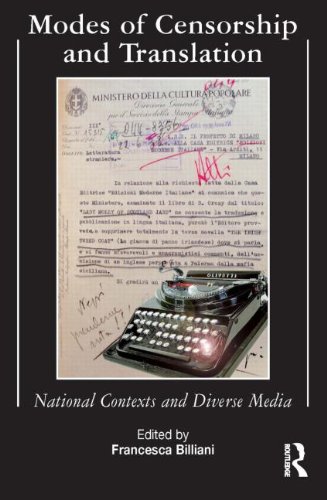

Most ebook files are in PDF format, so you can easily read them using various software such as Foxit Reader or directly on the Google Chrome browser.
Some ebook files are released by publishers in other formats such as .awz, .mobi, .epub, .fb2, etc. You may need to install specific software to read these formats on mobile/PC, such as Calibre.
Please read the tutorial at this link: https://ebookbell.com/faq
We offer FREE conversion to the popular formats you request; however, this may take some time. Therefore, right after payment, please email us, and we will try to provide the service as quickly as possible.
For some exceptional file formats or broken links (if any), please refrain from opening any disputes. Instead, email us first, and we will try to assist within a maximum of 6 hours.
EbookBell Team

0.0
0 reviewsModes of Censorship and Translation articulates a variety of scholarly and disciplinary perspectives and offers the reader access to the widening cultural debate on translation and censorship, including cross-national forms of cultural fertilization. It is a study of censorship and its patterns of operation across a range of disciplinary settings, from media to cultural and literary studies, engaging with often neglected genres and media such as radio, cinema and theatre.
Adopting an interdisciplinary and transnational approach and bringing together contributions based on primary research which often draws on unpublished archival material, the volume analyzes the multi-faceted relationship between censorship and translation in different national contexts, including Italy, Spain, Great Britain, Greece, Nazi Germany and the GDR, focusing on the political, ideological and aesthetic implications of censorship, as well as the hermeneutic play fostered by any translational act. By offering innovative methodological interpretations and stimulating case studies, it proposes new readings of the operational modes of both censorship and translation. The essays gathered here challenge current notions of the accessibility of culture, whether in overtly ideological and politically repressive contexts, or in seemingly 'neutral' cultural scenarios.